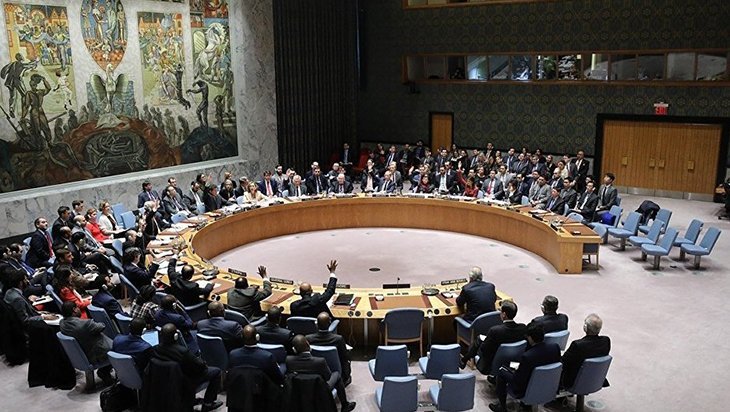“Detecting and Interdicting Terrorist Travel”, Global Efforts and Turkey

After ISIS lost Mosul and Raqqa, debates on the decline of the organization in terms of logistical, economic and military power have proliferated, and concerns about the Foreign Terrorist Fighters’ (FTFs) return to their home countries or third countries with the fall of the group climbed up to the top of the international security agenda. Despite the casualties of these fighters on the field -estimated to be no less than 25 thousand when the organization was at the peak of its strength- their existence is still considered to be a serious security threat in both regional and international levels. In this regard, the importance of the monitoring these people has increased in recent years, and the events such as the Paris and Brussels attacks have also drawn attention to the mobility of the FTFs and ISIS sympathizers in general. It is also clear that the perceived threat of terrorism in Turkey is not limited to ISIS. Within this scope, as seen from Turkish efforts in the Syrian border, the term ‘border security’ including physical and military measures is to be addressed in a more holistic approach with strengthened international cooperation. One of the tools the importance of which has increased within this broader framework to struggle against this threat is to match the data collected through the Advanced Passenger Information (API) and Passenger Name Registration (PNR) with the data of suspicious or banned persons and to prevent their travels and inform relevant authorities.
API, iAPI and PNR Data
The Advanced Passenger Information (API) system can be summarized as an electronic communication system that collects biographical data from the passenger's passport along with the basic flight information the airline operators obtain. This data is thereafter transmitted to the border control units of the country of residence where the passenger will arrive and/or leave through the communication network between the airlines. At this stage, border control authorities are enabled to conduct necessary matchings with the suspect/criminal database they have. However, it would be appropriate to state that the API systems differ in terms of complexity and costs. One of the most significant distinctions is whether the system is mass-type or interactive (iAPI). In batch-style API systems, the airline operator transfers the data of all passengers to the relevant units when the flight is closed. Therefore, when there exists a criminal concern about the passengers boarded in the plane, using such API systems only makes it possible for the necessary actions to be taken when the plane arrived, not for the authorities to prevent them from boarding these people beforehand.
On the other hand, in the iAPI system, data is transferred to the relevant units in real time and on an individual basis and thus, it allows prevention of the flights of some individuals and the approval is received for each passenger within maximum 4 seconds. In this way, the relevant institutions can identify possible or already-proven-guilty persons and prevent them from boarding in the flight, which provides an opportunity for them to carry out required legal process in advance. On the other hand, if these people have the possibility of passing through an illegal network or if they believe that they will be protected in the country of destination -which constitutes an important reason for the journey in many criminal cases- the person can be brought to justice before s/he arrives in the country of destination, leading to such a problem. Additionally, Passenger Name Registration (PNR) systems provide a further set of data that further details are incorporated into the API data pool and makes the information flow more comprehensive. The PNR data can be used to pour the reservation information, such as ticketing and payment details and flight details into this pool after the booking process.
Therefore, one of the prominent advantages the PNR data offers is to carry out a retrospective research upon previously non-suspects by tracing back their financial transactions and monitoring who or which organization made their travel arrangements in cases where these individuals committed crimes. According to the IOCA, API data should be transmitted after the doors have been closed and the aircraft is ready for take-off and, if possible, with a single message transmission in no less than 30 minutes before the aircraft’s departure. In iAPI data, it is aimed that the data is shared when the passenger checks in and presents his/her travel documents, so that the data is shared simultaneously for each passenger from 24 hours to 1 hour prior to the flight. This should be presented in the PNR data as close to the aircraft take off as possible and hence, the repetitive and case/person-oriented data requests should be limited. Therefore, the API and PNR systems, in fact, provide a very valuable set of data for both detection of suspects or criminals, prevention of their travels, and identification of their financial and human networks.
International Community and Prevention of Terrorists' Travels
It is worth remembering in this context that the United Nations Security Council Resolution numbered 2178 and dated 2014, which is famous for its emphasis on the Foreign Terrorist Fighters (FTFs), focuses on the flight information and screening of suspicious individuals based on this information. According to Resolution 2178, the UN calls for the airline operators in the Member States to provide API information to the relevant institutions and thus to detect their departure from the country, their effort to enter the country or pass through it. This call was repeated in 2016 with the UNSC Resolution 2309. It is no coincidence that 2016 was the year when ISIS suffered losses on the ground and that the FTFs became increasingly important on the agenda.
Thus, the UN stated this threat and that it was very well aware of this threat, and also stressed the need for Member States to step up their efforts; thus, giving an important message to those countries which do not have the required level of awareness or the necessary technical capabilities. Resolution 2396 of December 2017 is the most recent decision within this context. In this resolution, the UN calls on Member States to strengthen their border security, their efforts for information sharing, and other means related to the return of FTFs. In this context, the Member States are urged to collect API, PNRs and biometric data of the people suspected of terrorist activities, developing monitoring lists and matching the data with these lists, strengthening information sharing and increasing their capacities in order to march this data in coordination with the organizations such as INTERPOL, IATA, IOCA, and CTED under the roof of the UN.
In connection with this message, 56 UN Member States are currently using the API system. It is clear that the increase in this given number is quite vital for the global fight against terrorism. For monitoring the suspects’ travel and the incorporation of this data to international information sharing schemes in the countries except these 56 stands out as a major obstacle in this context. This number is particularly noteworthy in these days when returning FTFs, which legal processes to be followed about them, how to identify and disengage them from terrorists groups have been climbing up in the international the security agenda.
At this point, it should be underlined that the API system is both a costly and serious technical know-how system and maintenance expenses constitute a substantial component. Furthermore, the necessary legal, administrative, and financial arrangements must be made before the API systems are operational, through regional and/or international cooperation when needed. Therefore, in order to implement the API system, briefly, there are certain requirements such as technical knowledge and trained personnel, economic resource and state mechanism with the ability to adapt quickly. Hence, to provide support to the countries that lack one or a few of these elements continues to be an important item on the agenda of international organizations such as the UN and the Organization for Security and Cooperation in Europe (OSCE), in order not to leave any “blind spot”. Within this context, workshops on the issues of both the significance and advantages of the API system and its set-up and management are prioritized. The International Civil Aviation Organization (IOCA) also conducts in-depth studies on the issue, aiming at developing and spreading know-how globally and improving the capabilities of airline operators, and focuses on standards that need to be introduced for data sharing. In this context, in addition to the briefing activities on the API, iAPI and PNR data, the IOCA publishes documents about the importance of timely data sharing and the required standards of transmitting them. These documents put emphasis on capacity building as well. Nevertheless, it would be realistic to argue that security-driven sensitivities among countries lead to an understandable slowdown in terms of data sharing in a timely manner which poses another major challenge.
Turkey and Its Position in the Global Fight Against Terrorists’ Travel Initiatives
Turkey, due to its geographic proximity to terrorist groups with various motives and the fact that these groups have also been active in the country along with the country’s crucial geographical position in the context of travels, has a highly significant role in terms of data collection and sharing. Being one of the above-mentioned 56 UN Member States where the API system is in use, Turkey’s critical importance was witnessed during the international information-sharing processes prior to the attacks in Brussels and Paris. In addition to those attacks, it is also valid to argue that Turkey is located in an even more critical security axis in the context of the question of “returnees”. Within this framework, Turkey, the founding co-chair of the Global Counter-Terrorism Forum (GCTF) and one of the architects of the above-mentioned Resolution 2178 participated in the 9th Ministerial Meeting entitled “Detection and Intervention of Terrorists’ Travels through Strengthened Terrorist Tracking and Information-Sharing” in September, 2018, focused on “terrorists’ travel initiatives”.
The main issues discussed in this meeting were the “watch lists” in which the “matching” with the above-mentioned data pool will be carried out, the accessibility of these lists to the authorities at the borders, and the establishment of an internationally integrated database and doing all these by taking into consideration the legal rules and fundamental rights regarding privacy and protection of personal data. Turkey, to note in this regard, currently holds a no-entry list of around 70 thousand names, has active risk analysis units in 16 provinces at 22 points, more than six thousand suspects have been registered as Inadmissible Passenger (INAD), and about six thousand people have already been deported. Combined, all these shows the international community that Turkey, aside from its significant geographical proximity, is well aware of the danger and puts a serious effort in terms of taking necessary steps in order to tackle it effectively.
Nevertheless, in terms of combating a group of which participants have been coming from almost every region of the world it is clearly unrealistic to expect that the whole burden can and should be carried by a single country without the required international cooperation. Besides, there are examples of Brussels and Paris attacks which showed the lack of adequate and urgent response to effective and timely shared data can result in catastrophic outcomes.
In addition, either due to bias or focus on some particular groups based on the threats perceived, many countries have failed to follow a holistic approach to data sharing and monitoring of terrorist travel. Without a clear classification and designation of terrorist groups which somehow ignores Turkey's multi-dimensional fight with multiple terrorist groups and a common perspective at this point, there exists the danger that information sharing and international efforts will be limited only to the organizations such as ISIS and al-Qaeda. Thus, it is seen that Turkey assumes a serious responsibility on this issue in its own geography, makes remarkable efforts and obtains a substantial know-how and implementation experience on this subject the international community has been increasingly becoming aware of. How concretely the international community will back up these efforts, to what extent it will adopt a holistic and unbiased approach in terms of the definition of terrorism and designation of terrorist groups are among the factors that will determine the future success of global fight against terrorism including the collection and sharing data regarding the detecting and interdicting of terrorist travel.









